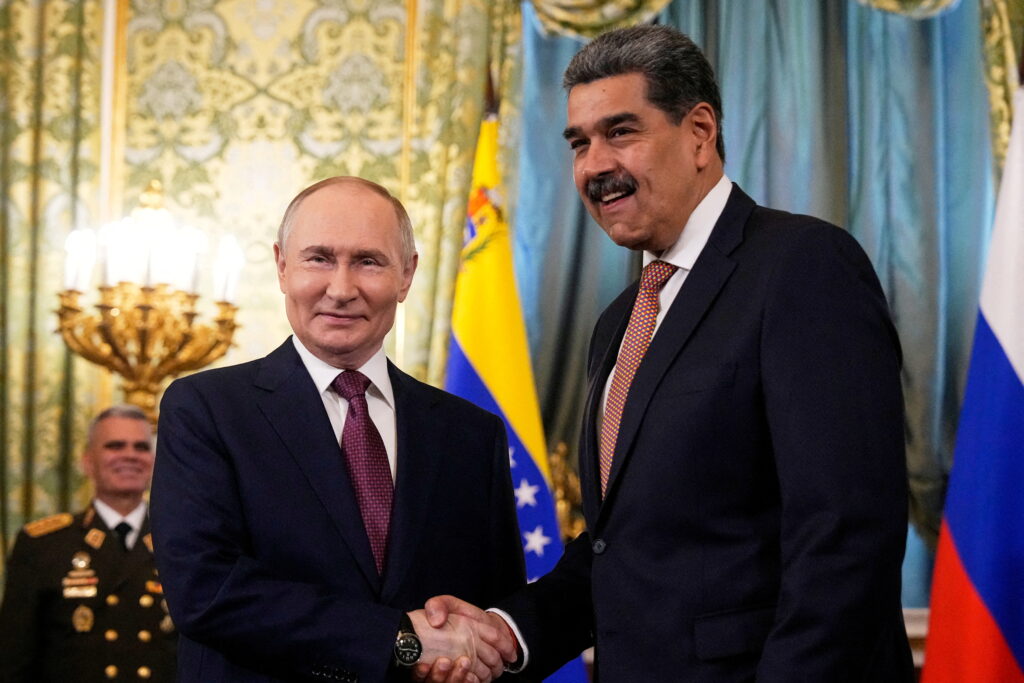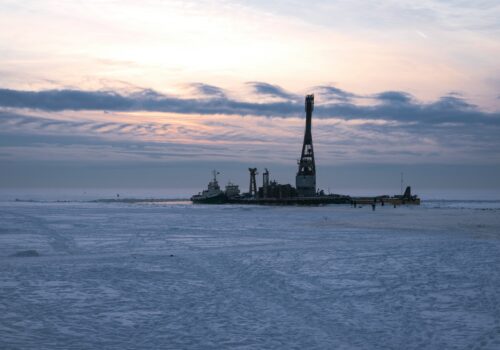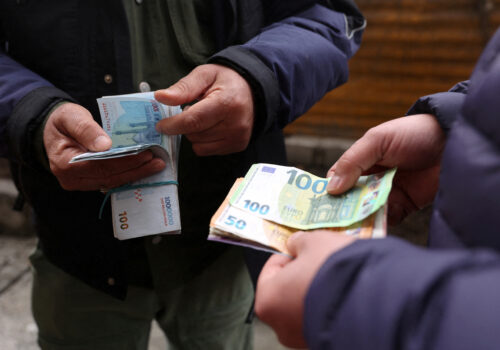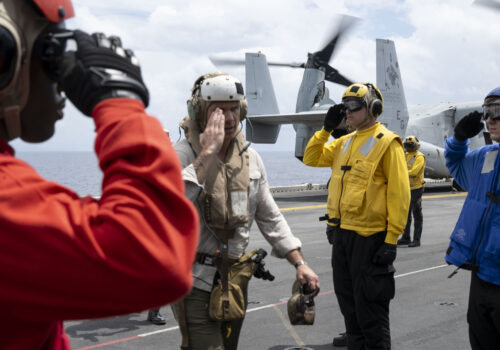Caracas appears to be in Washington’s crosshairs. Since August, when US President Donald Trump first ordered US warships to deploy off the coast of Venezuela, the White House has approved multiple targeted strikes on suspected drug trafficking vessels leaving Venezuela and authorized CIA operations within the country, among other actions. Some US officials have privately stated that a goal is to remove Venezuelan autocrat Nicolás Maduro from power, although US strategic intentions remain unclear.
As Maduro faces increased pressure, including the risk of impending US military strikes, he has turned to Venezuela’s autocratic allies for help. According to reporting by the Washington Post, Maduro has implored China, Iran, and Russia for missiles, radars, drones, and other military capabilities and assistance.
Of these three countries, Russia has long been the most important for Venezuela, and Maduro reportedly sent his request directly to Russian President Vladimir Putin in October. But with Russia’s full-scale invasion of Ukraine now in its third year and the country’s already weakened economy facing increased pressure from a new wave of US and European Union sanctions, there are significant limits to the aid that Moscow can provide Maduro—and an open question whether it will continue its assistance if the Venezuelan leader is threatened.
A long-standing partnership
Russia and Venezuela have long had close ties, with the partnership deepening significantly after then Venezuelan President Hugo Chavez reached out to Putin in 2000 for much-needed support. In the twenty-five years since then, Russia has been a vital source of military and economic aid for Venezuela. While Russian state-linked oil companies receive some oil in return for their investments, the real benefit of Moscow’s investment in Venezuela is geopolitical. In return for arms and money, Russia gains a significant foothold in South America, helping to fulfill Putin’s ambitions of making Russia a great power and challenging the United States in its own hemisphere. Russia’s support for Venezuela furthers the Kremlin’s ability to act as a spoiler for US interests, and it has the potential to pull US attention and resources away from opposing Russian aggression in Ukraine and elsewhere in Europe.
Russian oil companies have invested in Venezuela for decades, and this investment helped ensure that Venezuelan state-owned oil company PDVSA was able to sustain its output in recent years. Last month, Russia and Venezuela signed a Strategic Partnership Treaty, which calls for expanded collaboration in sectors such as energy, mining, transport, communications, and counterterrorism. Yet, the financial returns on these investments have not always been substantial. In 2019, Reuters reported that Russian companies had yet to break even on the billions of dollars’ worth of investments in the country’s oil sector over the preceding decade. Even so, Russian companies also have the exploration rights for oil and gas reserves, which are potentially worth billions of dollars. These untapped reserves continue to incentivize Moscow’s sustained presence in the country despite its early investments failing to provide a financial windfall.
Since Russia’s full-scale invasion of Ukraine became the Kremlin’s main priority and a drain on Russia’s resources, Moscow has dialed back interest in, and likely its aid to, Venezuela. However, Russia continues to value projecting the image of a formidable ally, investing instead in cultivating ties through military diplomacy. Russia and Venezuela have carried out at least nine military exchanges since 2022, and this included Venezuela hosting part of Russia’s 2022 International Army Games. Though reduced from earlier years, Russia does still provide Venezuela military aid. In July, Venezuela opened a factory to produce Russian Kalashnikov munitions, and last week, a Russian transport aircraft linked to the Russian military landed in Caracas.
In the past, Russia has been willing to deploy military assets to Venezuela when the regime has faced threats. In December 2018, Putin sent two Tu-160 strategic bombers alongside other aircraft to Caracas as Maduro faced international pressure following the election in May of that year, the outcome of which was rejected by Venezuelan opposition candidates. Then in early 2019, as Maduro continued to face opposition, Russia deployed the S-300 surface-to-air missile system to Venezuela, a clear sign of support.
What will Russian support look like this time?
Russia has had success in propping up its autocratic allies in the past. Most notably, Russia’s direct military intervention in Syria in 2015 helped change the course of the civil war and propped up the regime of Bashar al-Assad for years. But the Kremlin’s support for Assad waned after it launched the war in Ukraine, which contributed to the Syrian regime’s collapse in December 2024. This delivered a blow to Russia’s credibility as a reliable ally for Putin’s autocratic friends and should serve as a warning to Maduro.
Maduro’s appeals to Moscow for help may result in some aid, but he should not expect Putin to be his savior. Russia continues to face real economic constraints that limit its ability to provide an economic lifeline to Venezuela. When Maduro traveled to Moscow in August to mark eighty years of the bilateral relationship, he came home without any new loans or funding. Trade between the two topped out at $1.2 billion in 2024, less than a third of Russia’s trade with other Latin American nations such as Brazil and Mexico. With Russia’s wartime economy facing stagnation and potential decline, Moscow is likely hesitant to spend already limited funds on propping up Maduro.
Significant Russian military support is also unlikely to be forthcoming, even if the United States launches some sort of targeted strike within Venezuela. Today, Russia’s war against Ukraine has made it more reliant on China, Iran, and North Korea. As Russia scholar Angela Stent wrote in an Atlantic Council report released last month, these countries are “essential for Russia’s continued prosecution of the war.” Notably missing from this list of key allies is Venezuela. And even being part of this group, sometimes referred to as an “axis,” does not ensure Russian aid. Though Iran is a critical supplier of Shahed drones, the strategic partnership treaty between Moscow and Tehran signed in January stipulates that Russia will not come to Iran’s defense if it is attacked by Israel or the United States.
Indeed, following the US strikes on Iran earlier this year, Russia responded with words of condemnation, but no tangible actions of support. Instead, Moscow welcomed the distraction from its war in Ukraine that the attacks provided. Should the United States strike Venezuela, Moscow would likely repeat this playbook and avoid coming to Venezuela’s aid in any meaningful way.
Expect Russian bluster over real benefits
Despite the limits he faces in providing economic or significant military aid to Maduro, Putin certainly still wants to be seen as a reliable and valuable partner to autocracies around the world. One option that Putin may employ is nuclear saber-rattling. Earlier this year, Russian lawmakers proposed deploying nuclear missiles to Venezuela and Cuba. While nothing has come of this threat, such statements allow Moscow to convey support for its ally in Caracas without undertaking action.
Don’t be surprised if, to up the ante now, Putin openly muses about such deployments in the coming weeks. But Russia’s economic constraints and its focus on Ukraine mean that there is simply not much that Moscow can really provide to Venezuela. Bold rhetoric from the Kremlin will continue, but not much else is likely to follow.
Imran Bayoumi is an associate director with the GeoStrategy Initiative in the Atlantic Council’s Scowcroft Center for Strategy and Security.
Shelby Magid is the deputy director of the Atlantic Council’s Eurasia Center.
Further reading
Thu, Oct 23, 2025
How the new US sanctions on Russian oil will impact energy markets
EnergySource By Andrea Clabough, David L. Goldwyn, Ellen Wald, Andrei Covatariu
US sanctions on Russian oil and gas producers could have major implications for energy markets, but their impact depends on multiple factors.
Fri, Oct 24, 2025
‘Snapback’ sanctions are deepening the Iran-Russia alignment
MENASource By
United by a desire to counter US influence, Iran and Russia are poised to deepen their bilateral and multilateral cooperation.
Wed, Sep 10, 2025
What to know about Trump’s war on drug trafficking from Venezuela
New Atlanticist By
The recent US strike on a suspected drug trafficking boat is best understood in the context of the Trump administration’s policies toward Venezuela and the wider Western Hemisphere.
Image: Russian President Vladimir Putin shakes hands with his Venezuelan counterpart Nicolas Maduro during a meeting at the Kremlin in Moscow, Russia, May 7, 2025. Alexander Zemlianichenko/Pool via Reuters.




